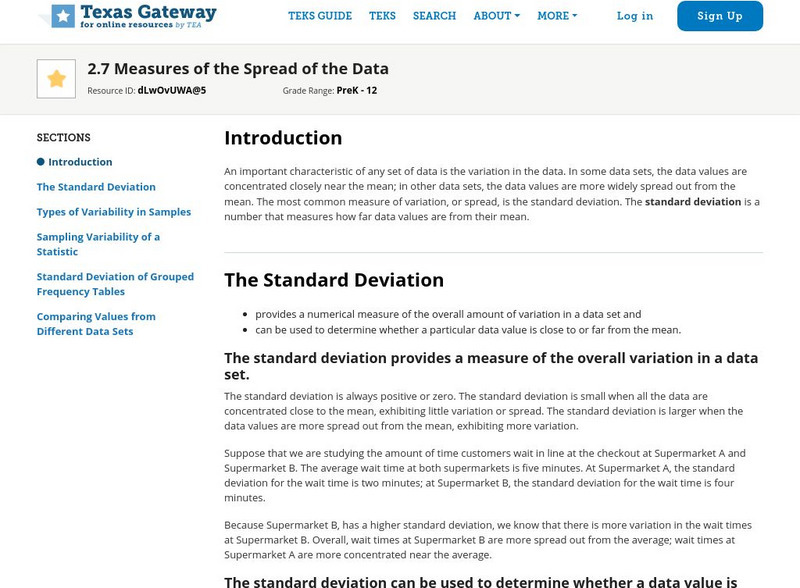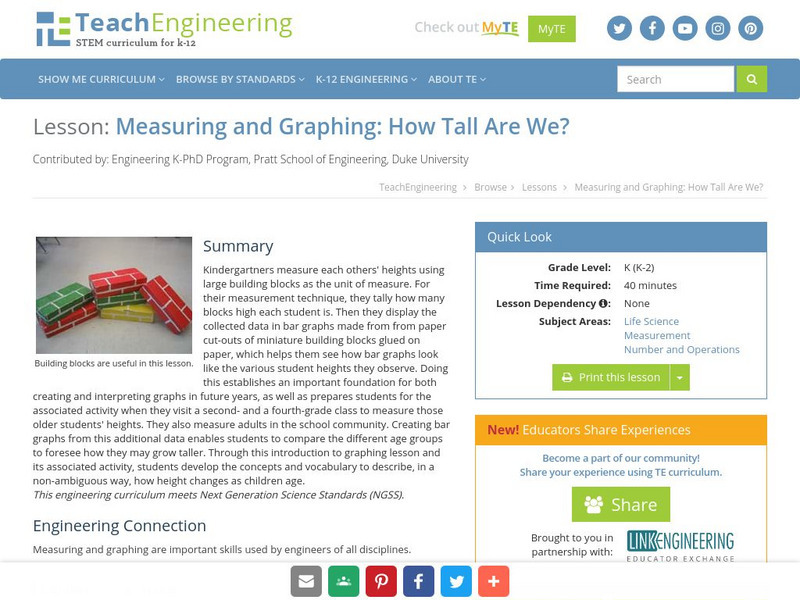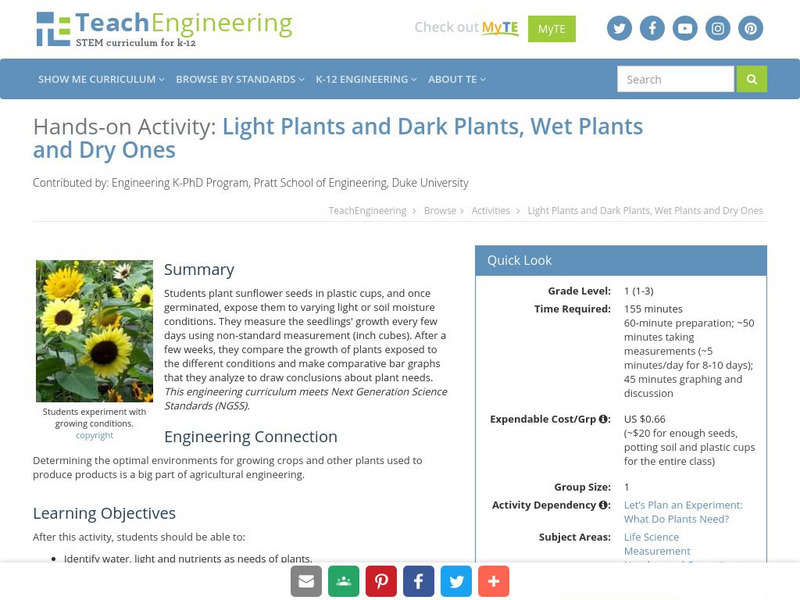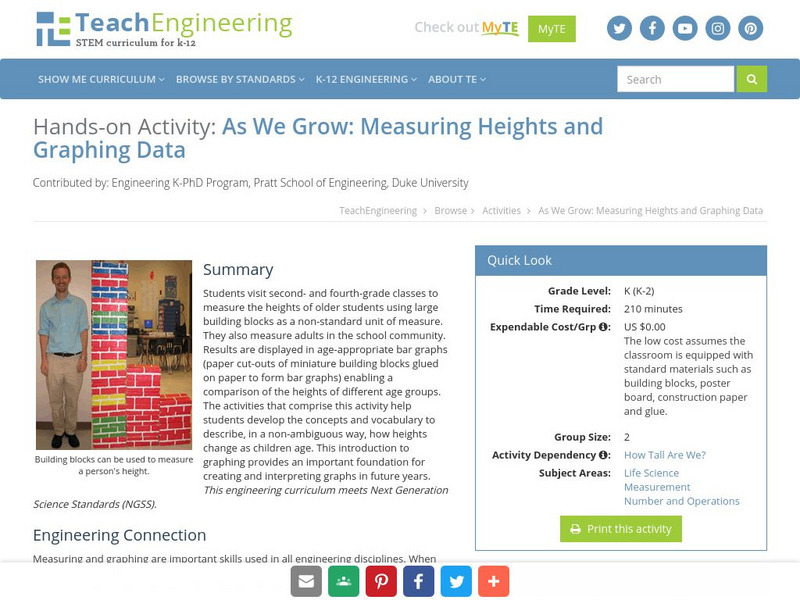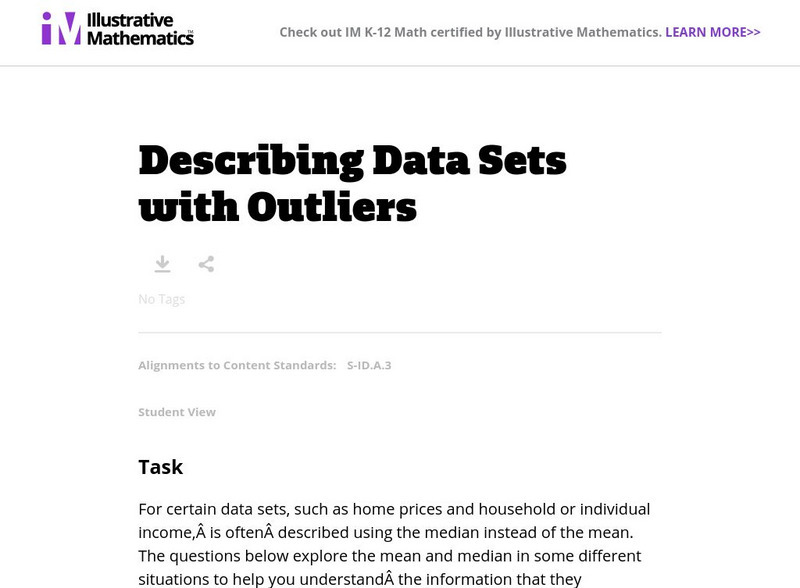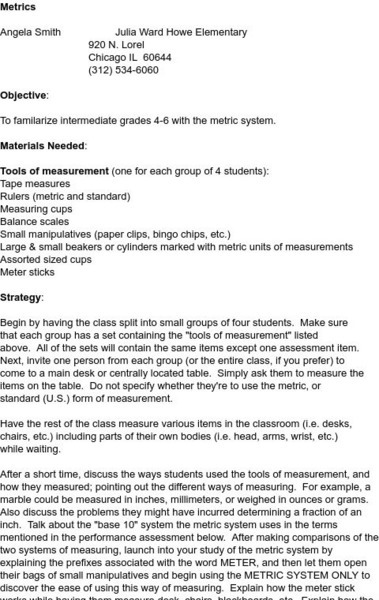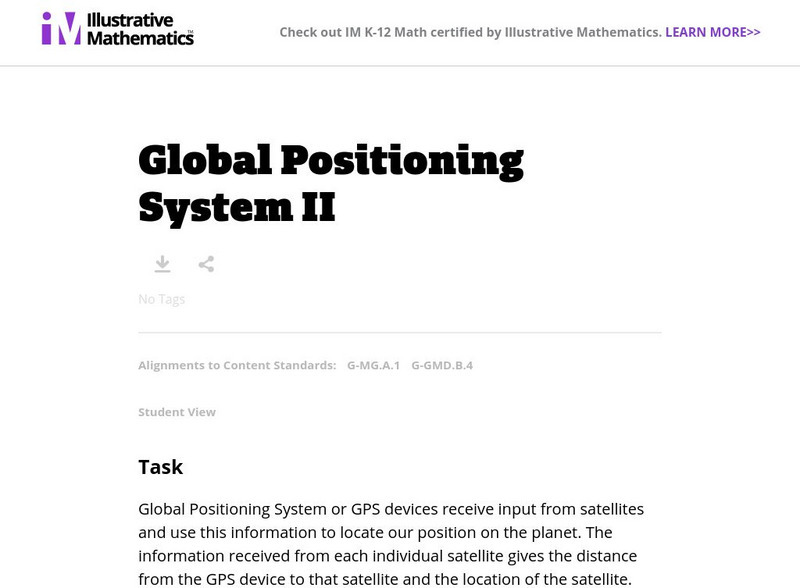PBS
Pbs Learning Media: Curious George Stem: Measure Up Lesson Plan
A lesson plan for students to practice measurements with different sized items using both standard and nonstandard units.
Texas Education Agency
Texas Gateway: Tea Statistics: Measures of the Spread of the Data
This resource explains the different measures of center, variability, etc. that are used to describe the spread of statistical data. Includes examples and practice exercises.
Better Lesson
Better Lesson: Use a Non Standard Unit to Measure
In this lesson students will use color tiles to measure classroom objects.
TeachEngineering
Teach Engineering: How Tall Are We?
Kindergartners measure each other's height using large building blocks, then visit a 2nd and a 4th grade class to measure those students. They can also measure adults in the school community. Results are displayed in age-appropriate bar...
TeachEngineering
Teach Engineering: Light Plants and Dark Plants, Wet Plants and Dry Ones
Students plant sunflower seeds in plastic cups, and once germinated, these are exposed to different conditions of light levels and/or soil moisture contents. During exposure of the plants to these different conditions, students measure...
PBS
Pbs Mathline: It Takes Ten Lesson Plan [Pdf]
Students rotate from station to station completing activities involving measurement weight, length, and volume using metric measurement.
Science Struck
Science Struck: Liquid Measurement Conversion
Provides tables showing how to convert liquid measurements used for cooking between different customary units and metric units. Covers teaspoons up to gallons, as well as conversions to milliliters.
TeachEngineering
Teach Engineering: Growing and Graphing
Students visit a 2nd and a 4th grade class to measure the heights of older students using large building blocks as a non-standard unit of measure. They can also measure adults in the school community. Results are displayed in...
Other
Conversions for Weight Measurements
This site allows you to convert weight/mass measurements. For example converting tons to grams. CCSS.Math.Content.3.MD.A.2 Measure and estimate liquid volumes and masses of objects using standard units
Illustrative Mathematics
Illustrative Mathematics: S Id.3 Describing Data Sets With Outliers
For certain data sets, such as home prices and household or individual income, is often described using the median instead of the mean. This lesson explores the mean and median in some different situations to help you understand the...
Illustrative Mathematics
Illustrative Mathematics: 2.md How Big Is a Foot?
For this lesson plan students will determine how big a foot is using a book, tools, and attached worksheets.
Illustrative Mathematics
Illustrative Mathematics: How Heavy
Students will have fun learning about weights with this hands-on activity. Students will use a balance scale to compare the weights of two different objects. Recording sheets are provided.
Better Lesson
Better Lesson: Lines and Line Segments
A lesson to cover the standards about line segments. In this lesson, 2nd graders will measure and record the length of a line segment. Students will also compare lengths of a line but adding and subtracting line segments.
Council for Economic Education
Econ Ed Link: Closing the Gap
The students learn what GDP is. They will learn different measures of GDP as well as how GDP per capita can be used to compare countries. They will also calculate GDP per capita and learn how poorer countries can converge, or close the...
Science and Mathematics Initiative for Learning Enhancement (SMILE)
Smile: Metric System
This lesson plan familiarizes students in grades 4-6 with using the metric system and performing conversions.
Illustrative Mathematics
Illustrative Mathematics: 8.g Find the Angle
In this task, 8th graders have to reason with angles and angle measurements, including the sum of the angles in a triangle, to deduce information from a picture. Includes a GeoGebra worksheet that the teacher can use for demonstration...
Illustrative Mathematics
Illustrative Mathematics: G Mg Hexagonal Pattern of Beehives
Beehives are made of walls, each of the same size, enclosing small hexagonal cells where honey and pollen are stored and bees are raised. This problem examines some of the mathematical advantages of the hexagonal tiling in a beehive....
Illustrative Mathematics
Illustrative Mathematics: G Mg Toilet Roll
Picture a roll of toilet paper; assume that the paper in the roll is very tightly rolled. Assuming that the paper in the roll is very thin, find a relationship between the thickness of the paper, the inner and outer radii of the roll,...
Illustrative Mathematics
Illustrative Mathematics: G Mg, G Gmd Global Positioning System Ii
Satellites communicate with a GPS device and establish the distance between them and their locations. The set of points at a fixed distance from a satellite form a sphere so when the GPS receives its distance from a given satellite, this...
Illustrative Mathematics
Illustrative Mathematics: G Mg How Thick Is a Soda Can? Variation I
In this task, students are given the dimensions of a soda can and are asked to estimate its thickness. They must first find the surface area and the volume of aluminum. Aligns with G-MG.A.1 and G-MG.A.2.
TeachEngineering
Teach Engineering: Find It!
In this activity students will learn the basic concept of Global Positioning Systems (GPS) using triangulation and measurement on a small scale in the classroom. Students discover how GPS and navigation integrate mathematic and...

